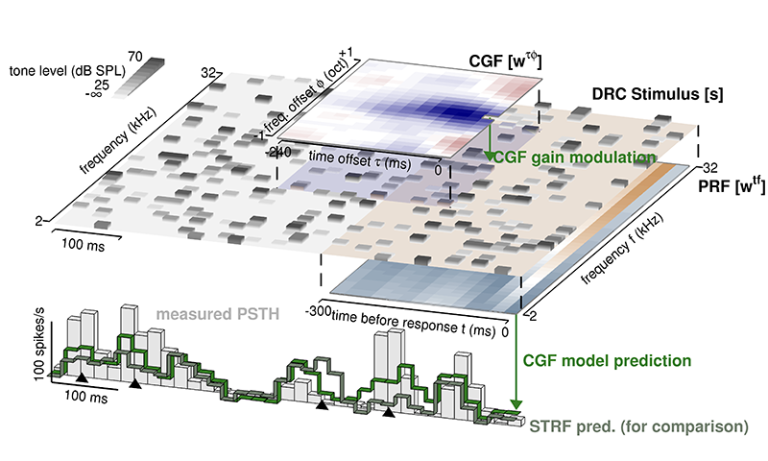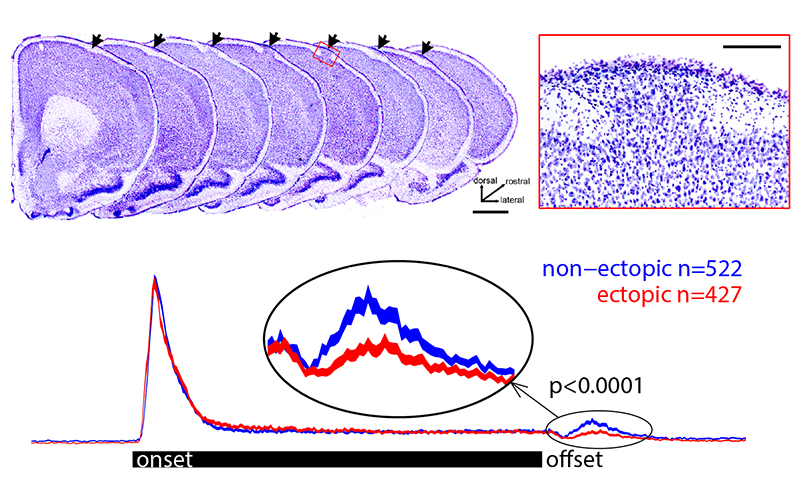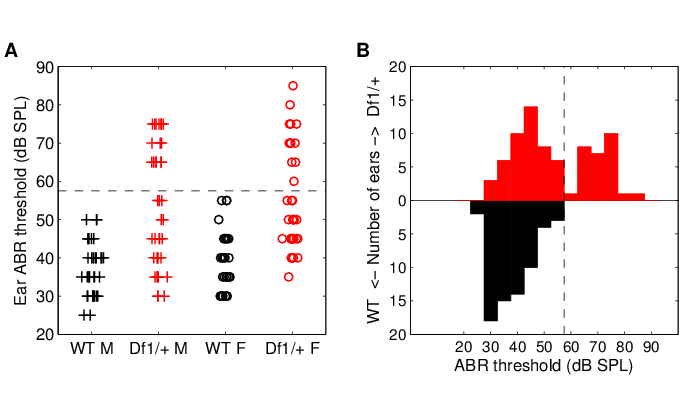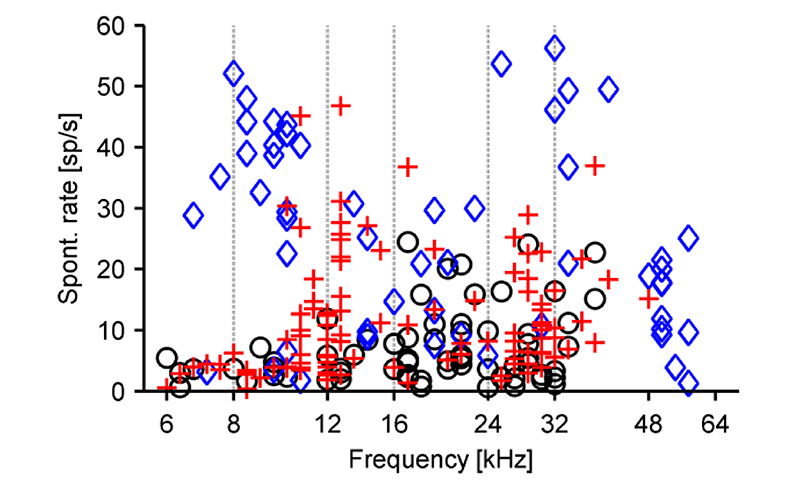Brain mechanisms of listening

We seek to understand brain mechanisms that enable us to listen effectively in complex sound environments. We're particularly interested in how the context in which a sound occurs influences its representation in the auditory cortex and thalamus; how temporally varying sounds are encoded in the activity of neural populations; and how different cortical cell types, cortical layers, cortical fields, and thalamic subdivisions contribute to sound perception.
Collaborators:
- Professor Maneesh Sahani (Gatsby Computational Neuroscience Unit, UCL)
- Dr Misha Ahrens (Janelia Research Campus, USA)
- Professor John O'Keefe (Department of Cell and Developmental Biology, UCL)
- Professor Maria Chait (Ear Institute, UCL)
- Professor Alain de Cheveigné (École Normale Superieure, Paris)
- Professor K. Jannis Hildebrandt (Universität Oldenburg, Germany)
- Professor Matteo Carandini (Institute of Ophthalmology, UCL)
Auditory brain abnormalities in developmental disorders

We study auditory brain abnormalities in mouse models of human developmental disorders such as dyslexia, specific language impairment and autism. In one of these projects, we have discovered a previously unsuspected form of central auditory abnormality: reduced brain sensitivity to sound offsets, but not sound onsets. We're now investigating how this abnormality arises, what its consequences for sound perception might be, and whether it is relevant to understanding listening difficulties in humans with central auditory processing disorders.
Collaborators:
- Dr Conny Kopp-Scheinpflug (Ludwig-Maximilians-Universität München, Germany)
- Professor Stuart Rosen (Department of Psychology and Language Sciences, UCL)
- Professor Doris-Eva Bamiou (Ear Institute, UCL)
- Professor Zoltan Molnar (University of Oxford, UK)
Auditory brain abnormalities in schizophrenia

We're interested in whether genetic risk of schizophrenia interacts with hearing loss to promote development of schizophrenia-related brain abnormalities. We work with a mouse model of 22q11.2 Deletion Syndrome (22q11DS), which is the most significant known cytogenetic risk factor for schizophrenia in humans. We have discovered that like humans with 22q11DS, these mice are highly susceptible to chronic middle ear infections. We've also discovered that this susceptibility arises from developmental defects in muscles lining the Eustachian tube. Currently we are investigating whether auditory brain abnormalities in these mice arise from their genetic abnormality, from experience of hearing impairment, or from interactions between the two factors.
Collaborators:
- Professor Elvira Bramon (Division of Psychiatry, UCL)
- Dr Kuan Hong Wang (National Institute of Mental Health, USA)
- Professor Abigail Tucker (King's College London, UK)
- Professor Peter Scambler (Institute of Child Health, UCL)
- Professor Andrew Forge (Ear Institute, UCL)
Other ongoing work

We collaborate with colleagues at the UCL Ear Institute and elsewhere to investigate central auditory pathologies associated with noise-induced hearing loss and tinnitus.
We are also proud to co-lead the Remote Audiology Project, a collaboration between the UCL Ear Institute, the Adult Diagnostic Audiology clinic at UCL Hospitals, and the NIHR-UCLH Biomedical Research Centre Deafness and Hearing Problems Theme.
Collaborators:
- Dr Hannah Cooper (Ear Institute, UCL)
- Professor Anne Schilder (Ear Institute, UCL)
- Dr Roland Schaette (Ear Institute, UCL)
- Professor David McAlpine (Macquarie University, Australia)
- Professor Jonathan Ashmore (Department of Neuroscience, Physiology & Pharmacology)
 Close
Close


